Espionage and Colombian regulations, integrity of the Social State of Law and National Security
Abstract
The risks of traditional espionage, where foreign or national citizens make contact with foreign security agencies or non-state actors, represent possible ways for the leakage of State information, as well as a vulnerability to potential damage to be done in the national territory, whether against strategic assets, national citizens or foreign interests present in Colombia.
The normative measures in Colombia, set forth in the Penal Code, Law 599 of 2000, stipulate the apprehension of any individual or group of individuals, arrested and tried for compromising secrets of a vital nature for the security of the State. The architecture of the Social State of Law, defined by the Political Constitution of 1991, demands the primacy of the parameters of human rights and IHL, as a principle of legality that extends to cases of espionage executed by nationals and foreigners.
The prevention of the entry or eventual expulsion of foreign citizens accused of espionage is under the authority of Migration Colombia; the national intelligence and Counter intelligence bodies carry out functions of tracking, prevention and monitoring of possible infiltration by external or internal actors, but the ultimate management of both the situation of permanence or legal status of foreign citizens accused of espionage is the responsibility of the Migration agency and the judicial system in charge of defining the criminal action.
Consequently, the research objective aims to observe how the guaranteeing sphere of IHL and the commitments of National Security coexist in the face of the phenomenon of espionage in Colombia; in view of which as a hypothesis it is considered that the dispersed nature of the normative context in charge of typifying such activities, affects the applicability of criminal measures, in such a way that the decisive path is the activation of protocols of expulsion of the individual or groups of foreigners related to cases of espionage.
Downloads
References
Collazos, M. (20 de mayo de 2019). rcnradio.com. Obtenido de https://www.rcnradio.com/judicial/ordenan-libertad-cubano-acusado-de-planear-atentados-enbogota
Colombian Risk Analisys. (2021). El papel de Colombia en medio de la competencia de las grandes potencias. Colombia Risk Analysis. Obtenido de https://23aa0fcf-8783-47cb-a144-74c17bafa633.usrfiles.com/ugd/23aa0f_33dc2226afc04cc08098ec6995bf6885.pdf
Congreso de la República. (17 de abril de 2013) Ley Estatutaria N° 1621 [Ley 1621 de 2013
Congreso de la República. (24 de julio del 2000). Por la cual se expide el Código Penal. [Ley 599 de 2000].
Constitución Política de Colombia [Const.] (1991). Artículos 152 y 153 [Titulo VI].
Corte Constitucional. (1995). Sentencia C-225/95.
Corte Constitucional. (2012). Sentencia C-540/12. [MP Jorge Iván Palacio Palacio].
Departamento Administrativo de la Función Pública. (31 de octubre de 2011). Por el cual se crea la Unidad Administrativa Especial Migración Colombia, se establece su objetivo y estructura. [Decreto 4062 de 2011].
Derecho internacional relativo a la conducción de las hostilidades (Comité internacional de la Cruz Roja 20 de junio de 2005). Obtenido de https://www.icrc.org/es/publication/derecho-internacional-relativo-la-conduccion-de-las-hostilidadescoleccion-de-convenios
El Tiempo. (20 de diciembre de 2018). eltiempo.com. Obtenido de https://www.eltiempo.com/colombia/otras-ciudades/quien-es-carlos-manuel-pino-garcia-307260
El Tiempo. (19 de marzo de 2019). eltiempo.com. Obtenido de https://www.eltiempo.com/justicia/investigacion/aumenta-alerta-por-espionaje-a-bases-militarescolombianas-339668
Estatuto de combatiente y de prisionero de guerra (Comité internacional de la Cruz Roja, 28 de febrero de 1989). Obtenido de https://www.icrc.org/es/doc/resources/documents/misc/5tdm4r.htm
IV. Convenio de Ginebra (Comité internacional de la Cruz Roja, 12 de agosto de 1949). Obtenido de https://www.icrc.org/es/doc/resources/documents/treaty/treatygc-4-5tdkyk.htm
Javeriana, P. U. (2002). Reflexiones en torno al Derecho Internacional Humanitario y el Nuevo Código Penal Colombiano. Bogotá: Pontificia Universidad Javeriana, Facultad de Ciencias Jurídicas, Departamento de Derecho Penal.
Jiménez, W. G., Angulo, L. L., Castiblanco, Y. P., Gómez, M. L., Rey, L. J., Solano, L. T., y Urquijo, Y. C. (2016). Ley estatutaria: ¿avance hacia la garantía del derecho fundamental a la salud? Revista Colombiana de Cirugía (31), 81-90. Obtenido de http://www.scielo.org.co/pdf/rcci/v31n2/v31n2a2.pdf https://doi.org/10.30944/20117582.249
Lowenthal, M. (2000). Counterintelligence. En Intelligence: From secrets to policy (págs. 145-156). CQ Press.
Ministerio de Relaciones Exteriores. (26 de mayo de 2015). Por medio del cual se expide el Decreto Único Reglamentario del Sector Administrativo de Relaciones Exteriores. [Decreto 1067 de 2015].
Ministerio de Relaciones Exteriores. (2 de agosto de 2017). Por la cual se dictan disposiciones en materia de visas […]. [Resolución 6045 de 2017].
Olaya, M. A. (2004). El bloque de constitucionalidad en la jurisprudencia de la Corte Constitucional colombiana. Precedente Revista Jurídica, 79-102.
Ramos, L. N. (1999). Policía Judicial. Composición, funciones y principios de actuación. Unidades orgánicas de la Policía Judicial: su dependencia funcional y orgánica. Eguzkilore: cuaderno del Instituto Vasco de Criminología, 117-156.
Sanín, G. T. (2018). Estado, política y economía en Colombia -capitalismo burocrático y gansteril-. Señal Editora.
Copyright (c) 2021 Sergio Andrés Ramírez Figueredo (Autor/a)

This work is licensed under a Creative Commons Attribution-NonCommercial-NoDerivatives 4.0 International License.













